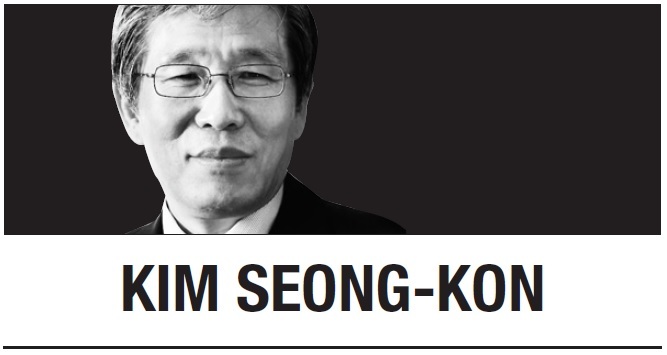SEOUL — The famous motto of the US state of New Hampshire is “Live Free or Die.” The phrase is adopted from a toast by New Hampshire’s famed Gen. John Stark of the American Revolutionary War, who wrote in 1809, “Live free or die: Death is not the worst of evils.” That means that losing freedom is worse than death. It also resonates with what Patrick Henry said in 1775, “Give me liberty or give me death!” Those phrases especially appeal to the American mind because independence is what America stands for.
America is not alone in this. The phrase also echoes the popular motto of the French Revolution in 1789, “Vivre livre ou Mourir,” or “Live free or die.” In the United Kingdom, poet William Wordsworth wrote in the 19th century, “We must be free or die.” In such countries, where people fought for freedom and cherish liberal democracy, individual freedom is absolutely the most important thing. It is especially so in the United States where the spirit of independence and civil disobedience persists in the American mind.
In many advanced, democratic countries, people believe that the government has no right to oppress the people’s freedom under any circumstances. Thus, they would not be obedient to the government’s impositions or measures that bind their God-given freedom. Therefore, the more advanced a country is, the more difficult it is to deal with a pandemic such as COVID-19 because it cannot regulate people at will. Ironically, therefore, authoritarian or totalitarian countries can contain a pandemic more effectively because they can easily suppress people’s freedom.
In democratic countries, people would not tolerate their government’s attempts to limit their freedom guaranteed by a constitution, even in a pandemic situation. In such countries that value and respect individual freedom, the government does not and cannot restrict the freedom of religion, speech, or assembly under the excuse of public safety or national security. In fact, public safety or national security has always been a typical excuse for dictators to control the people.
Furthermore, medical records are strictly confidential in advanced countries. Thus, you cannot find out who the COVID-19 patients are in your town or apartment complex. Otherwise, it will be a violation of the doctor-patient confidentiality. Of course, it will make you uncomfortable if you do not know it when your neighbor is a coronavirus patient. Nevertheless, you should respect and protect the human rights of a patient.
However, not all countries are the same. In Korea, for example, medical records are not so confidential and people can easily identify COVID-19 patients, shun them and even condemn them as if they were criminals. If you happen to be in a hot spot where there is a large gathering, you will be under the government’s surveillance immediately. The authorities will closely monitor your movements and instruct you what to do, using your smartphone. Moreover, law enforcement officers can stop you on the street and take you to a COVID-19 test site by force. We take it for granted, thinking that it is for the greater good or the safety of communities. However, such a social milieu may create a Coronavirus Big Brother that constantly watches us and deprives us of our freedom under the pretense of an emergency. Older Koreans still vividly remember the nightmare landscape where a series of “Emergency Measures” canceled individual freedoms during the military dictatorship of the 1970s.
Before the second wave of COVID-19 hit Korea recently, we had been so proud of ourselves for our relative success in containing the pandemic. Watching advanced countries hopelessly struggling with the virus, we thought they were no longer the advanced countries they claimed they were, whereas Korea was undoubtedly an exemplary one. We thought we overcame the pandemic thanks to our thoughtfulness, our willingness to wear a mask for others, and our community spirit.
Now we belatedly realize that it was not the case. We now know that the main reason for Korea’s initial success in containing the pandemic was the government’s restriction of individual freedoms and people’s voluntary cooperation. Indeed, most Koreans are used to an authoritarian government and abiding by the rules and regulations imposed by it. Moreover, Korean society traditionally values unity in the community, rather than individuality.
An inevitable outcome of such a phenomenon is the deterioration of democracy. If the pandemic continues, we may get used to the government’s control of our freedom and take it for granted. Then we will witness the crisis of democracy and end up living in an authoritarian or totalitarian society. Meanwhile, our politicians will continue to defy democracy legally, claiming that they have our consent.
Experts maintain that the days of military dictators are over now. These days, however, legally elected political leaders are undermining democracy under the excuse of emergencies. In this era of the pandemic, we should be aware of it and stay on alert in order to protect our freedom and democracy.
The author, Kim Seong-kon, is a professor emeritus of English at Seoul National University and a visiting scholar at Dartmouth College.


